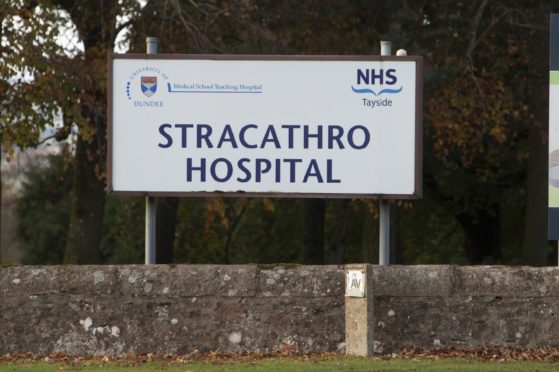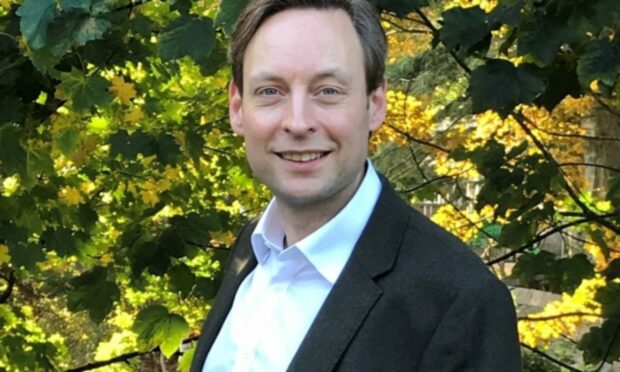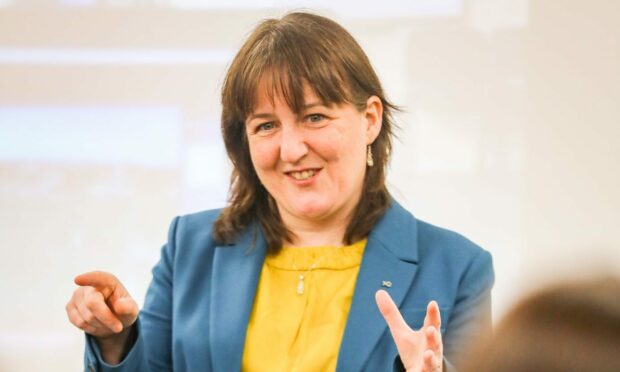The SNP’s “centralisation” of health services away from rural hospitals have contributed to the post-pandemic backlog, the Scottish Conservatives have said.
Patients in Angus have to travel to Ninewells and Perth Royal Infirmary — and have done since before the Covid pandemic closed swathes of the NHS — for colonoscopy and endoscopy screening.
Now, because of the pandemic, it is estimated there is a seven-month backlog in the process.
Mental health and stroke care programmes have also been removed from the hospital in recent years.
The Scottish Government is to introduce up to six mobile endoscopy vans, which can be used for screening.
Scottish Conservative North East MSP Liam Kerr said it would be better for services to be returned to rural hospitals for patients living in areas like Angus.
Problems to come
Mr Kerr warned the removal of services away from rural locations to bigger hospitals miles away could be “storing up bigger problems” for the likes of cancer diagnosis in future.
He raised the issue during portfolio questions, which was answered by public health minister Maree Todd.
He said: “Routine screening via endoscopy and colonoscopy are vital to catching cancer early.
“Detection delays mean more costly treatment, poorer outcomes, and reduced survival rates.
“NHS staff are working tirelessly to get the backlog under control, and I agreed with Maree Todd on that.
“But today was a missed opportunity for the Minister, and for Humza Yousaf sitting next to her, to acknowledge the benefit of using high-quality local hospitals like Stracathro to help.”
Patients making long journeys
At Holyrood on Tuesday, Mr Kerr asked: “Constituents have reported to me that Angus residents as far north as Edzell must travel to Dundee and Perth to receive endoscopy and colonoscopy services.
“After mental health and stroke care was centralised away from Stracathro, the suggestion is that cancer screening and detection has gone the same way.
“Does the Minister accept that it is long past time for the NHS Winter Plan — and beyond — to recognise that the withdrawal of local health care such as in Angus is storing up bigger problems in things like screening for the future?”
Ms Todd responded: “Since the bowel screening programme resumed in October 2020, invitations to participate in screening have been issuing at the same rate as they were before the pandemic.
“However, invitations to existing participants are issuing seven months later than they would have without the pause in March 2020. Anyone who turned 50 after the programme resumed will receive a kit shortly after their birthday as normal.
“Any patient referred with an urgent suspicion of cancer after screening including those from the bowel screening programme have and will remain a priority in accessing diagnostic tests (to) hopefully rule cancer out.
“To ensure (this) we’ve invested in four additional mobile units to support scope-based diagnostics, one of which is stationed at our national hospital at the Golden Jubilee.
“We’ll also shortly publish the endoscopy and neurology recovery and renewal plan, which will embed further improvements and ultimately work towards reducing waiting times and provide equitable access.
She added: “I would say that many boards are working really hard to ensure that to take the pressure off their central units to ensure that they are using all the facilities right out in the community and working closely with primary care.
“Boards are working tirelessly to see patients in as timely a way as possible based on their clinical need.
“There are two mobile endoscopy units, one of which operates in NHS Tayside, and a further two are to be brought on stream in the next couple of months.
“And that additional two mobile endoscopy units will provide four rooms so by January 2022, there will be six mobile endoscopy rooms in total across Scotland, which will increase the number of patients who can be seen and in turn, reduce waiting times for endoscopy.”


